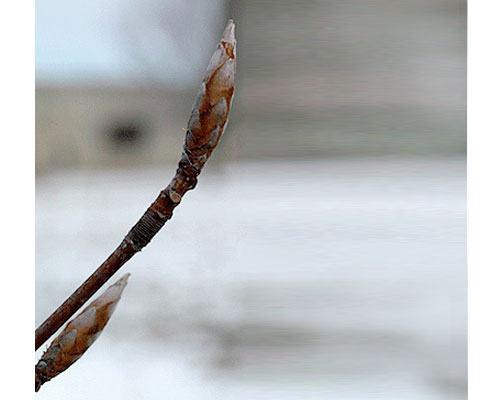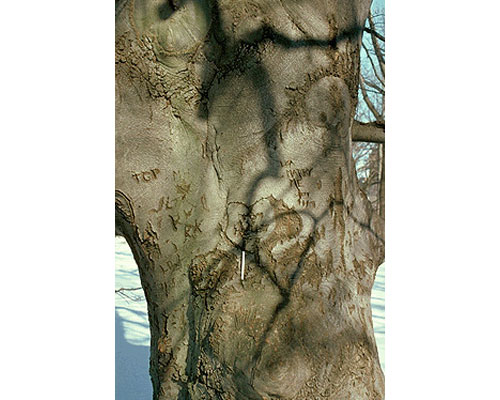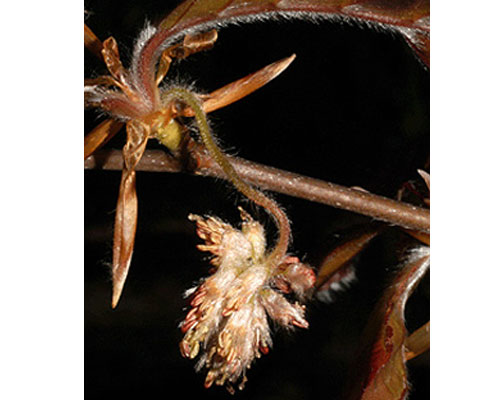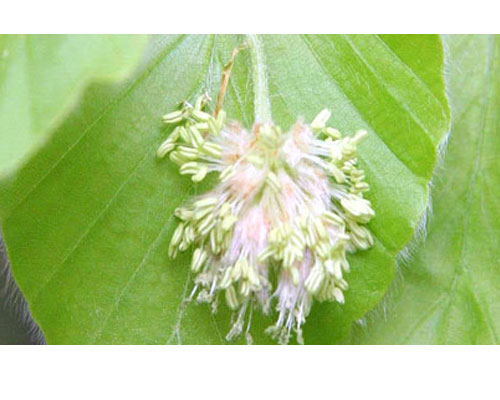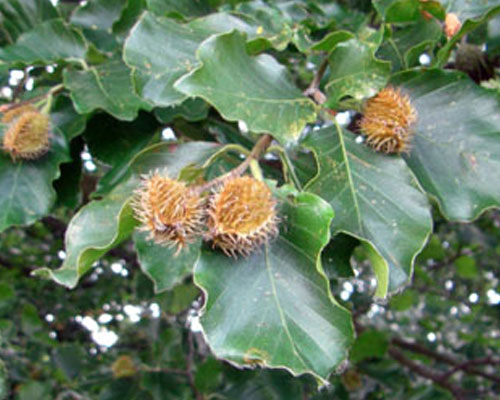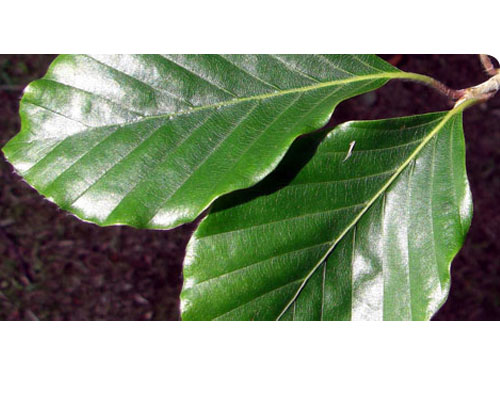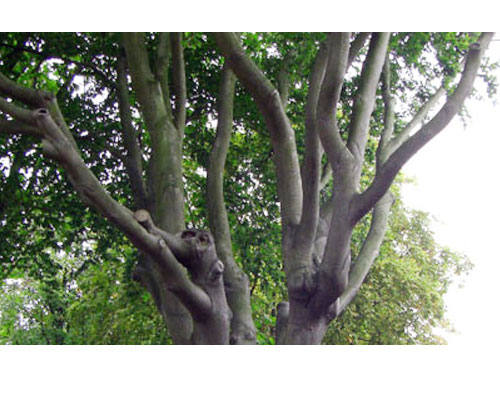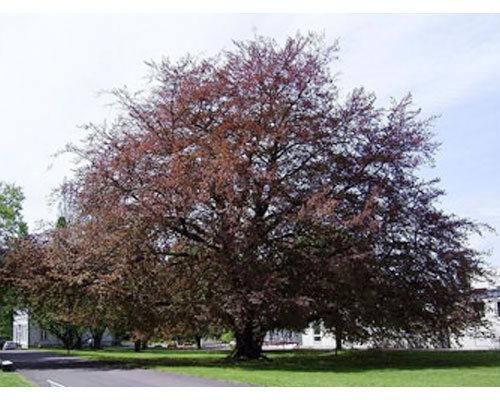European Copper Beech
European Copper Beech
Fagus sylvatica - #12
Gifford planted nine copper beech saplings (about 20 years old) at Grey Towers in 1920. Knowing the grand stature they would command at maturity, he commented at the time, “By George, I wish I could come back 100 years from now and see my trees.” You are looking at the mature trees that Gifford envisioned.
Similar to our native American beech, the major difference is that the leaves are a beautiful copper color in fall and burgundy in spring. Unlike most trees, the elasticity of beech bark allows it to expand as the tree grows, producing a smooth gray bark that looks like an elephant’s hide.
Both the words beech and book can be traced to similar Anglo-Saxon words, and it is said that early Germanic writings were inscribed on tablets of copper beech.

